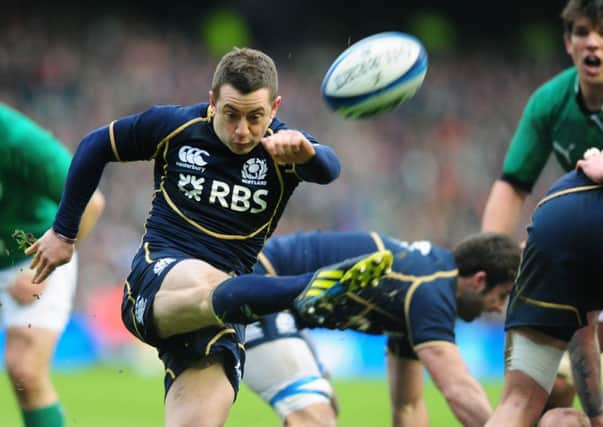Allan Massie: Will Scots avoid harsh Irish lesson?


The notion is, I suppose, that players who have toured with the Lions are exhausted by their efforts, and this grants the French a comparative advantage. However, if there is anything in the theory, it surely doesn’t apply this year, for, while the Lions were in Australia, France played three Test matches against New Zealand, a considerably tougher and more demanding assignment.
As usual, the Six Nations looks very open. There is no country that is legitimately the favourite. Wales won the Grand Slam last year, but, like Ireland, have to play England at Twickenham. It would be a surprise if they won there. On the other hand, England have away matches in Paris and Edinburgh; I wouldn’t bet on them winning both. The French have actually at last given their national team a better chance by getting clubs to agree that players in the squad should be withdrawn from last week’s Top 14 games. So they may be better prepared than they usually are for the first round of matches.
Advertisement
Hide AdAdvertisement
Hide AdEveryone of course is missing injured players. No use whining about that. It’s simply a fact of life in the professional game that neither club nor country can ever put its preferred full-strength XV on the field. So, for instance, France are without their captain, Thierry Dusautoir, England without Manu Tuilagi, Wales Jonathan Davies and Ian Evans, who is suspended; Ireland Sean O’Brien and Scotland Tim Visser, while Matt Scott, short of match fitness, starts on the bench. I daresay Italy are missing someone too.
It’s difficult to look forward to Sunday in Dublin with much optimism. As Jim Telfer remarked in that programme, winning away from home is difficult (winning at home has been hard enough in recent years). Nevertheless away victories are not generally as rare as in the amateur days – Grand Slams have become more common. This is doubtless because, thanks to the Heineken, players nowadays have much more experience of matches on foreign soil. Even so, unless there is an evident disparity between the sides, the home one will usually start as favourite.
Scott Johnson has selected a solid-looking pack that should at least hold its own, though one fears it may be a bit lacking in pace. Still, in the close encounters speed of thought is as important as speed of foot. Even with the revised and better laws relating to the set-up of the scrum, the outcome of this important part of the game is still too dependent on how the referee interprets not only the law, but what the front rows are doing. Craig Joubert had a dreadful match last spring when we played Wales at Murrayfield, practically every scrum resulting in a penalty or free kick, and we felt he had been repeatedly conned by a streetwise Welsh front row. Let us hope that he has a better game on Sunday, so that we actually see the ball emerge from the scrum from time to time.
In Stuart Hogg, Sean Maitland and Sean Lamont we have a good and dangerous back three, but in midfield Duncan Weir, Duncan Taylor and Alex Dunbar are still in the international rugby equivalent of primary school when compared to Jonny Sexton, Gordon D’Arcy and the peerless Brian O’Driscoll; the best one can say is that their legs are considerably younger. The Irish centres may be well on the wrong side of the hill, but you’d rather have them on your side than against you. It’s a measure incidentally of the disparity between the teams that O’Driscoll himself has scored almost twice as many international tries as the sum total scored by the starting Scottish XV.
Inability to score tries has been at the root of our problems for years, the majority of our victories in the last decade having been secured by the boot of Chris Paterson, Dan Parks or Greig Laidlaw. Laidlaw kicked four penalties when we beat Ireland 12-8 at Murrayfield last year. In one sense that game offered an object lesson in how to win without the ball, for Ireland had about 80 per cent of possession. However, one can’t expect to win that way again.
This will be Johnson’s 12th international in charge since he took over from Andy Robinson. There have been some good days and some bad ones, but in general he has been treated by the press and supporters with indulgence. It’s now surely time for him to deliver, if not perhaps this week, for the odds are against us at Lansdowne Road, then certainly when England come north to defend the Calcutta Cup in the second match of the championship. Otherwise he will be in danger of being regarded as a coach who talks a much better game than he can get his team to play.